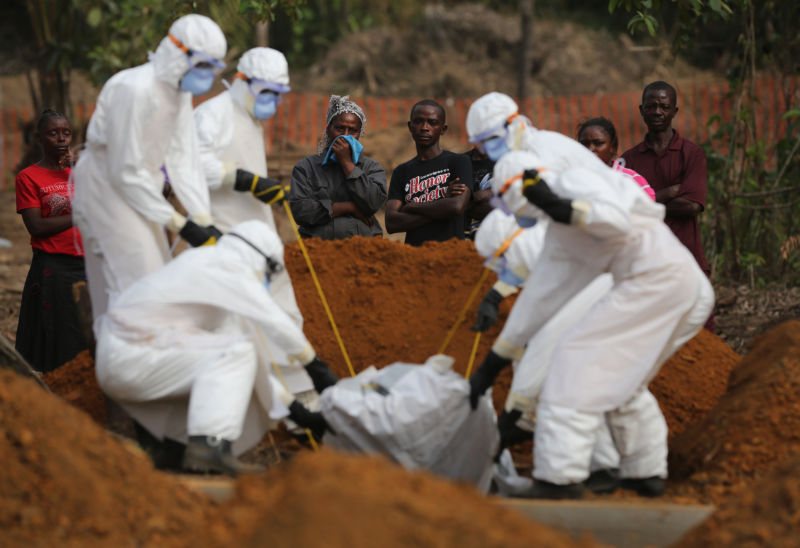
Enlarge / A family watches as a burial team lowers their loved one into a grave at the US-built cemetery for “safe burials” on January 27, 2015 in Disco Hill, Liberia, amid an Ebola epidemic. (credit: Getty | John Moore)
The World Health Organization on Tuesday declared the official end of the latest outbreak of Ebola in the Democratic Republic of the Congo, which tallied 54 cases, including 33 deaths. But a study published this week in the Lancet Infectious Diseases highlights just how tenuous such declarations can be when it comes to Ebola.
The study, led by researchers at the Centers for Disease Control and Prevention, traced a puzzling cluster of Ebola cases in Liberia to a mother who appeared to have had a stealthy, undiagnosed infection for more than a year. The cluster came to light when the woman’s 15-year-old son arrived at a hospital in Monrovia on November 17, 2015—more than two months after the country had been declared free of the disease in the wake of a massive outbreak that began in 2013. The woman’s husband and another of their four sons, an eight-year-old, subsequently tested positive for the virus.
Based on extensive epidemiological tracking, blood work, and viral genetic data, the researchers concluded that the woman likely picked up an Ebola infection in July of 2014. At the time, she was pregnant and caring for her brother, a nurse’s aide at a local clinic, who had come down with an illness after helping to treat an undiagnosed patient with symptoms consistent with Ebola. Her brother’s supervisor, wife, and seven-year-old son also fell ill.
Read 12 remaining paragraphs | Comments
https://arstechnica.com/?p=1349483





